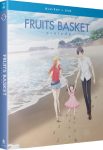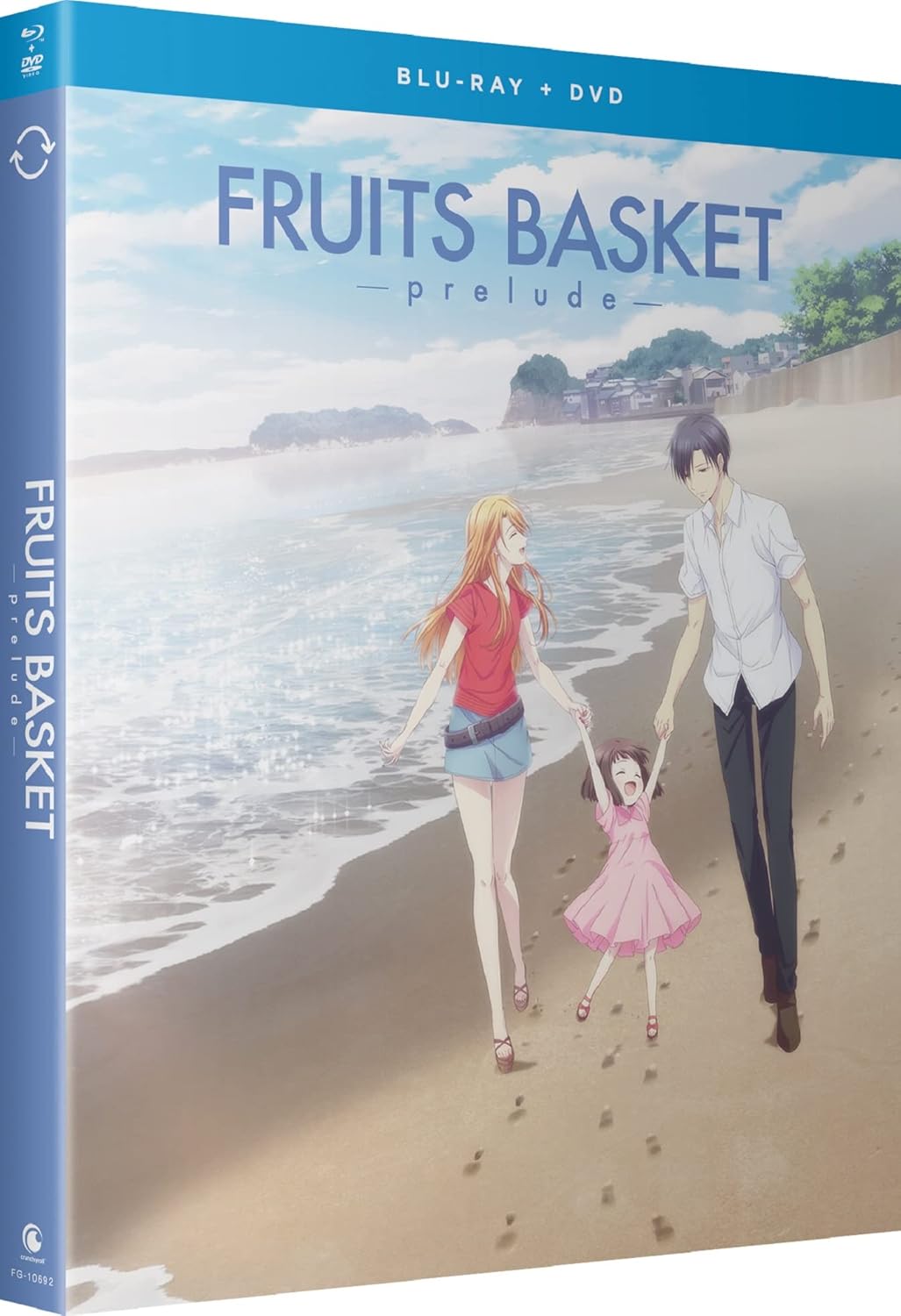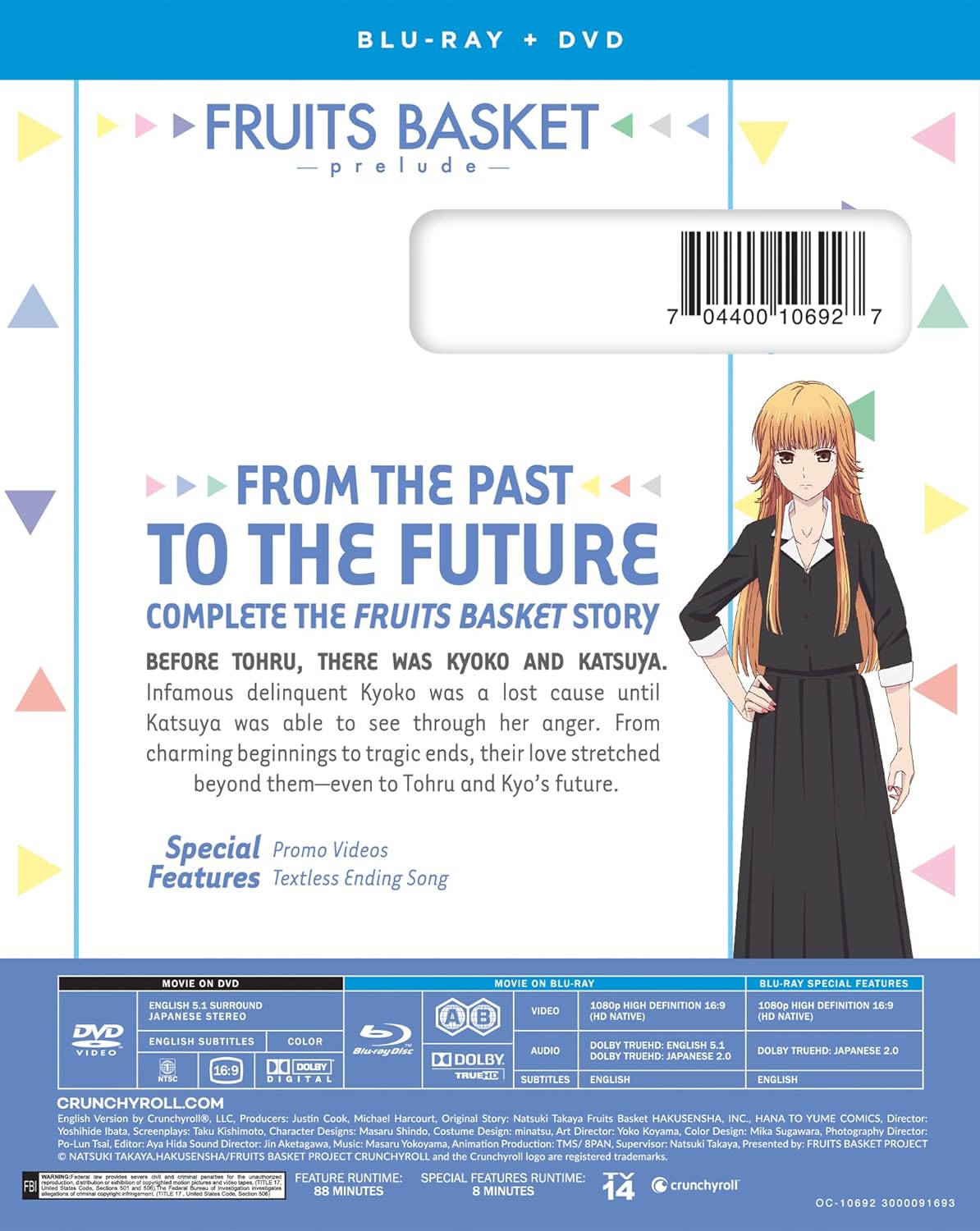
Fruits Basket: Prelude – The Movie – Review fruits basket Reading Guide – Oemiu
Fruits Basket: Prelude – A Deep Dive Review and Reading Guide
Fruits Basket, originally created by Natsuki Takaya, has captivated audiences worldwide with its heartwarming story of Tohru Honda, a compassionate orphan who stumbles upon the secret of the Sohma family: they transform into animals of the Chinese zodiac when embraced by someone of the opposite sex. While the main series focuses on Tohru’s journey of healing and acceptance, Fruits Basket: Prelude delves into the heartbreaking past of Tohru’s parents, Kyoko and Katsuya, offering a poignant exploration of love, loss, and the enduring power of human connection. This article provides a detailed review of the movie, alongside a reading guide for those looking to further explore the world of Fruits Basket.
A Journey Into the Past: The Emotional Core of Prelude
Fruits Basket: Prelude isn’t simply a side story; it’s an integral piece of the Fruits Basket narrative. It provides crucial context for Tohru’s character, explaining the origins of her unwavering optimism and the depth of her love for her parents. The film primarily focuses on Kyoko’s turbulent youth as a rebellious gang leader and her unlikely relationship with Katsuya, her middle school teacher. Their romance is far from a fairytale; it’s fraught with challenges, societal disapproval, and personal demons. We see Kyoko grapple with her past, striving to leave behind her delinquent life and find genuine happiness. Katsuya, a seemingly reserved and stoic individual, offers her unwavering support and understanding, seeing beyond her tough exterior to the vulnerable heart within. Their connection is built on mutual respect and a shared desire for a better future.
The movie masterfully portrays the complexities of their relationship. It doesn’t shy away from the difficult moments, showcasing their arguments, insecurities, and moments of doubt. This realism makes their love story all the more compelling and believable. The animation quality is stunning, bringing Takaya’s artwork to life with vibrant colors and expressive character designs. The voice acting is equally impressive, capturing the nuances of each character’s personality and emotions. The soundtrack is beautifully composed, perfectly complementing the mood and atmosphere of each scene. One of the most significant aspects of the story is that it shows how healing can come from the most unexpected places. Katsuya, despite his own challenges, becomes a pillar of strength for Kyoko, helping her confront her past and build a new life. Similarly, Kyoko’s unwavering love and acceptance allow Katsuya to open up and embrace his own vulnerabilities. This reciprocal healing is a central theme of Fruits Basket, and it’s beautifully explored in Prelude.
The film also includes a brief epilogue that shows Tohru after the events of the main series. She continues to cherish her memories of her parents and carries their love and teachings with her as she moves forward with her life. This epilogue provides a sense of closure and reinforces the overarching message of hope and healing that permeates the entire Fruits Basket series. Understanding Kyoko’s past helps to clarify Tohru’s motivations and her innate ability to connect with and heal those around her. Tohru’s unwavering belief in the good in people is a direct reflection of the love and acceptance she received from her parents, even in the face of adversity. The movie solidifies Fruits Basket as a multi-generational story of love, loss, and the enduring power of family.
Diving Deeper: Themes and Symbolism
Fruits Basket: Prelude is rich in thematic depth, exploring complex issues such as trauma, redemption, and the importance of communication. Kyoko’s past as a gang leader is not simply a rebellious phase; it’s a manifestation of her deep-seated pain and abandonment. She uses anger and violence as a defense mechanism to protect herself from further hurt. Katsuya’s role is not to condone her actions but to understand the underlying reasons behind them. He offers her a safe space to confront her trauma and begin the healing process. The film also highlights the societal pressures that can contribute to individual suffering. Kyoko faces judgment and disapproval for her past, making it even more difficult for her to break free from her old life. Katsuya’s unwavering support is crucial in helping her overcome these challenges and find acceptance. This highlights a key theme of Fruits Basket: the importance of empathy and understanding in a world that often prioritizes judgment and condemnation.
Symbolism plays a significant role in Fruits Basket: Prelude, enriching the narrative and adding layers of meaning. The color red, often associated with Kyoko’s past as a delinquent, represents her passion, anger, and pain. As she heals and finds happiness, the color palette shifts, incorporating softer and more vibrant hues. The image of the butterfly, a recurring motif in Fruits Basket, symbolizes transformation and rebirth. Kyoko’s journey is a testament to the human capacity for change, and the butterfly serves as a visual representation of her metamorphosis. Furthermore, the film subtly foreshadows events from the main series, creating a sense of continuity and connection. Hints of the Sohma family’s curse and its impact on their lives are woven into the narrative, providing a glimpse into the world that Tohru will eventually enter. This subtle foreshadowing adds depth and complexity to the story, rewarding viewers who are familiar with the main series.
The movie emphasizes the power of forgiveness, both of oneself and of others. Kyoko must learn to forgive herself for her past mistakes in order to move forward and build a new life. She also needs to forgive her own parents for the pain they caused her. This process of forgiveness is not easy, but it’s essential for her healing. Katsuya also grapples with his own internal struggles, learning to forgive himself for his perceived shortcomings and embracing his own vulnerabilities. The ability to forgive is presented as a key to breaking free from the cycle of pain and creating a more compassionate and understanding world. The emotional resonance of Fruits Basket: Prelude lies in its exploration of these universal themes, making it a powerful and moving experience for viewers of all ages. It is this delicate but effective narrative about forgiveness and healing that makes it a crucial part of the larger Fruits Basket canon.
Navigating the Fruits Basket Universe: A Reading Guide
For those who have been captivated by Fruits Basket: Prelude and wish to delve deeper into the world of Fruits Basket, the manga series offers a comprehensive and rewarding experience. Natsuki Takaya’s original manga spans 23 volumes and provides a richer and more detailed exploration of the characters, their relationships, and the overarching themes of the story. The manga delves deeper into the backstories of the Sohma family members, exploring their individual traumas and the challenges they face as a result of the zodiac curse. It also provides more nuanced perspectives on the complex dynamics within the family, showcasing the love, conflict, and ultimately, the healing that occurs as they confront their past and forge new connections.
The manga is not simply an adaptation of the anime; it’s the source material and contains details and nuances that are not always present in the animated versions. It offers a more comprehensive understanding of the characters’ motivations and the underlying themes of the story. The manga also features additional side stories and character arcs that are not included in the anime, providing a more complete and satisfying experience for fans. For example, the manga delves deeper into the relationship between Kureno and Arisa Uotani, providing a more nuanced understanding of their connection and the challenges they face. It also explores the backstories of other Sohma family members, such as Ritsu and Kagura, providing a more complete picture of the family’s history and the impact of the curse. Reading the manga allows you to fully immerse yourself in Takaya’s world and appreciate the artistry and storytelling that have made Fruits Basket a beloved classic.
Considerations for diving into the manga: The original manga series consists of 23 volumes, while the collector’s edition comprises 12 volumes with larger pages and new cover art. Both versions contain the same story content. In terms of reading order, it’s generally recommended to start with the main Fruits Basket series (volumes 1-23 or 1-12 of the collector’s edition) before reading Fruits Basket Another. This will provide a solid foundation for understanding the characters and the world before delving into the sequel series. After finishing the main series, you can explore other related works, such as Fruits Basket Another, which focuses on a new protagonist and a new generation of characters connected to the Sohma family. Fruits Basket Another offers a fresh perspective on the world and explores new themes and relationships, while still maintaining the heartwarming and emotionally resonant storytelling that made the original series so beloved. It is important to note that Fruits Basket: Prelude’s story does not fully exist in the original manga, but relies on supplemental materials by Takaya sensei.
Essential Reading: Characters and Story Arcs
Understanding the key characters and story arcs is essential for navigating the Fruits Basket universe. Tohru Honda, the optimistic and compassionate protagonist, serves as the catalyst for change within the Sohma family. Her unwavering belief in the good in people and her willingness to help others heal from their pain are central to the story. Kyo Sohma, the hot-headed and insecure outcast, struggles with his identity as the cat of the zodiac and his feelings for Tohru. His character arc is one of self-acceptance and learning to embrace his own vulnerabilities. Yuki Sohma, the seemingly perfect and charismatic rat of the zodiac, grapples with his own insecurities and his desire for genuine connection. His character arc is one of self-discovery and learning to open himself up to others.
Akito Sohma, the enigmatic and tyrannical head of the Sohma family, is a complex and deeply troubled character. Their actions are driven by a deep-seated fear of abandonment and a desire to maintain control over the zodiac members. Understanding Akito’s motivations is crucial for understanding the overall themes of the story. Other significant characters include Shigure Sohma, the mischievous and insightful dog of the zodiac, who often manipulates situations to achieve his own goals; Hatori Sohma, the wise and compassionate dragon of the zodiac, who serves as a doctor and confidant to the family; and Ayame Sohma, the flamboyant and eccentric snake of the zodiac, who provides comic relief and a unique perspective on the world. Each character brings their own unique perspective and contributes to the richness and complexity of the Fruits Basket universe. These characters are interwoven in narrative arcs that showcase love, loss, and the importance of family as Tohru seeks to break the zodiac curse.
Key story arcs to follow include Tohru’s relationship with the Sohma family, her efforts to break the zodiac curse, the individual struggles of each Sohma member, and the overarching mystery surrounding Akito’s motivations. The story explores themes of love, loss, acceptance, and the importance of communication. It also tackles difficult issues such as trauma, abuse, and mental health, providing a nuanced and compassionate portrayal of human suffering. By exploring these themes and following the journeys of these complex and compelling characters, you can gain a deeper appreciation for the enduring power and emotional resonance of Fruits Basket.
| Feature | Manga | Anime (2019) | Fruits Basket: Prelude |
|---|---|---|---|
| Scope | Comprehensive, details not in anime | Covers main story, mostly faithful | Kyoko & Katsuya’s story, Tohru epilogue |
| Depth of Character Backstories | Extensive, more detailed | Streamlined, focuses on main characters | Focuses on Kyoko & Katsuya, some Tohru |
| Pacing | More leisurely, allows for development | Faster-paced, some details cut | Self-contained, focused pacing |
| Content Differences | Original source material | Adaptation, some changes and omissions | Original story by Takaya, supplemental |
FAQ
Is Fruits Basket: Prelude necessary to understand the main series?
While not strictly *necessary*, Fruits Basket: Prelude significantly enriches the viewing experience of the main series. It provides crucial context for Tohru’s character, explaining the origins of her unwavering optimism and her deep love for her parents. Understanding Kyoko’s past and her relationship with Katsuya adds layers of meaning to Tohru’s actions and motivations throughout the series. The movie also sheds light on the themes of trauma, healing, and the importance of family that are central to Fruits Basket. Viewing Prelude after watching the main series can also offer a deeper appreciation for the characters and their journeys. However, it is not a mandatory prerequisite, and the main series can be enjoyed without it. That said, it greatly enhances appreciation for the world of Fruits Basket.
What is the best order to watch or read the Fruits Basket series?
The generally recommended order is to start with the main Fruits Basket series, either the original 2001 anime, the 2019 remake, or the manga. Once you’ve finished the main series, you can then watch Fruits Basket: Prelude to gain a deeper understanding of Tohru’s parents’ backstory. After that, you can explore Fruits Basket Another, which is a sequel series that focuses on a new generation of characters. If you’re planning to read the manga, it’s best to start with the main Fruits Basket series (volumes 1-23) before reading Fruits Basket Another. This will provide a solid foundation for understanding the characters and the world before delving into the sequel series.
Is Fruits Basket suitable for all ages?
Fruits Basket deals with mature themes such as trauma, abuse, and mental health. While the series also contains heartwarming and uplifting moments, it is important to be aware of the potentially sensitive content. Younger viewers may not fully grasp the complexities of the story, and some scenes may be disturbing. It is recommended that parents or guardians review the series beforehand to determine if it is appropriate for their children. However, Fruits Basket can also be a valuable tool for promoting empathy and understanding, and it can spark important conversations about mental health and relationships.
What are some other anime or manga similar to Fruits Basket?
If you enjoyed Fruits Basket, you might also enjoy other anime and manga that explore similar themes of healing, acceptance, and the importance of human connection. Some popular recommendations include “Natsume’s Book of Friends,” which follows a boy who can see spirits and helps them find peace; “Your Lie in April,” a poignant story about a young pianist who rediscovers his love for music after a traumatic experience; and “Clannad,” a slice-of-life anime that explores themes of family, friendship, and loss. These series share Fruits Basket’s focus on character development, emotional depth, and the power of human connection. Each story presents its characters with a unique set of challenges, but they all ultimately find healing and hope through their relationships with others. They offer a combination of heartwarming moments, emotionally resonant storytelling, and thought-provoking themes.
What makes the 2019 Fruits Basket anime remake better than the original?
The 2019 Fruits Basket anime remake is considered superior to the original for several reasons. Firstly, it is a much more faithful adaptation of the manga, covering the entire story arc and including many details that were omitted from the original anime. Secondly, the animation quality is significantly improved, with more vibrant colors, expressive character designs, and fluid animation. Thirdly, the voice acting is generally considered to be stronger, with the cast delivering nuanced and emotionally resonant performances. While the original anime holds a special place in the hearts of many fans, the 2019 remake offers a more complete and satisfying adaptation of the Fruits Basket story.
How does Fruits Basket address issues of mental health?
Fruits Basket is lauded for its sensitive and nuanced portrayal of mental health issues. Throughout the series, characters grapple with a range of challenges, including trauma, anxiety, depression, and low self-esteem. The series explores the impact of these issues on their lives and relationships, and it emphasizes the importance of seeking help and support. The characters’ struggles are portrayed with empathy and understanding, and the series avoids stigmatizing mental illness. Fruits Basket’s honest and compassionate approach to mental health has resonated with many viewers and has sparked important conversations about these issues. The series demonstrates that struggling with mental health is not a sign of weakness, and that healing and recovery are possible with the right support.
What is the significance of the Chinese zodiac in Fruits Basket?
The Chinese zodiac plays a central role in Fruits Basket, serving as both a source of conflict and a symbol of hope. The Sohma family members are cursed to transform into the animals of the zodiac when embraced by someone of the opposite sex, which isolates them from the outside world and creates internal conflicts within the family. The zodiac curse represents the burden of the past and the challenges of breaking free from tradition. However, the zodiac animals also represent the unique qualities and personalities of each Sohma member. Each animal has its own strengths and weaknesses, and the characters must learn to embrace their identities and find acceptance within the family. Ultimately, the zodiac curse is not just a source of suffering; it’s also a catalyst for growth and change, pushing the characters to confront their past and build a better future. The breaking of the curse represents the ultimate triumph of love, acceptance, and forgiveness.


Price: $34.98 - $20.49
(as of Sep 06, 2025 08:06:59 UTC – Details)




